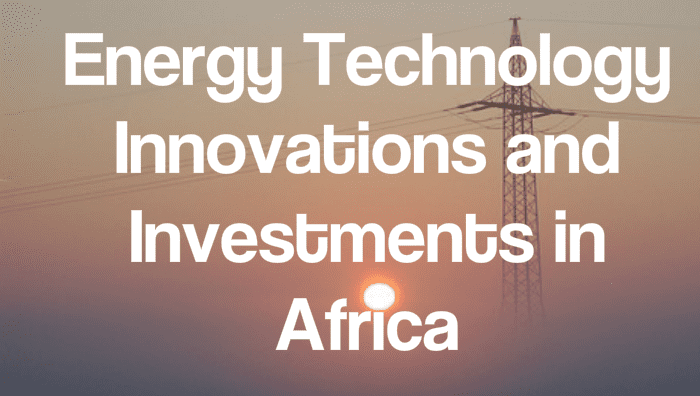In 2016, the World Energy Outlook reported that 1.2 billion people in the world did not have access to electricity; 95% of them being in Sub-Saharan Africa. As of July 2017, very few Sub-Saharan countries had more than 50% electricity access rates including Cote d’Ivoire, Cameroon, Ghana, South Africa, Namibia, Senegal, and Kenya.
Increasing access to electricity has the potential to boost economic growth in Africa. Environmentalists across the world are encouraging the use of innovative technology to produce energy in ways that do not lead to atmospheric pollution. Unlike many developed countries that have to dismantle existing power production equipment if they are to turn to clean energy, Africa stands in a perfect position to invest in clean energy without this kind of expense. It is against this background that Seedstars has partnered with Enel and seeks to promote innovative energy solutions in Africa with a focus on solar energy investments. The objective is to increase electricity access in rural Africa by promoting the use of renewable energy sources.
Climate Action notes that there are numerous opportunities for investing in energy technology innovation in Africa. In particular, reference is made to the increasing demand for electricity in the continent where more than 600 million people did not have electricity as of 2016. Moreover, Sub-Saharan Africa, with the exception of South Africa uses less energy than Spain, further illustrating the wide range of opportunities for investing in low carbon electricity generation.
According to Oliver Andrews of the Africa Finance Corporation, technology leapfrogging can play a significant role in enabling Africa to bypass the less efficient infrastructure to directly plug into the renewable energy economy. He points out Ethiopia as a good example of countries that have made great progress in this regard, noting that the country plans to be a zero net emissions economy by 2027. This will need substantial investment in technology oriented electricity production such as solar generation.
The use of energy data analytics is gaining momentum in Africa where companies such as powerhive are using integrated software to gather energy usage and grid function data. The company’s approach focuses on collecting data to understand consumption patterns and then using this data to attract investments in micro grids. Powerhive has been able to use data to demonstrate the suitability of micro grids, as a result, its fully owned subsidiary was granted a concession to operate as the first privately owned utility in Kenya.
The use of energy data analytics to attract investors in renewable energy is a new concept in the world. However, big companies in the developing world including Africa are using technology to track and store energy consumption related data. They are leveraging the absence of existing infrastructure to introduce data collection technology when building the systems. This would be expensive in developed countries where it would be necessary to retrofit existing infrastructure.
The suitability of Africa for energy technology innovation and investment is further demonstrated by the fact the Democratic Republic of Congo is one of the two countries in the world that have been picked by DT X to pilot an innovative energy solution. Dubbed Aqua Energy 4.0, the project demonstrates the suitability of investing in innovative and sustainable energy production; therefore, it encourages investment in energy sector, particularly in Africa and the rest of the developing world.

































